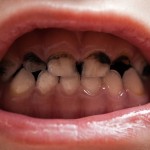
Good oral health can be achieved and maintained by compliance with preventive and curative measures and effective self-care. However, adherence to positive behaviours such as toothbrushing, interdental cleaning, smoking cessation and good dietary habits can be variable. Traditional approaches of patient education revolve around disseminating information and normative advice. Increasingly the use of motivational interviewing [read the full story…]






